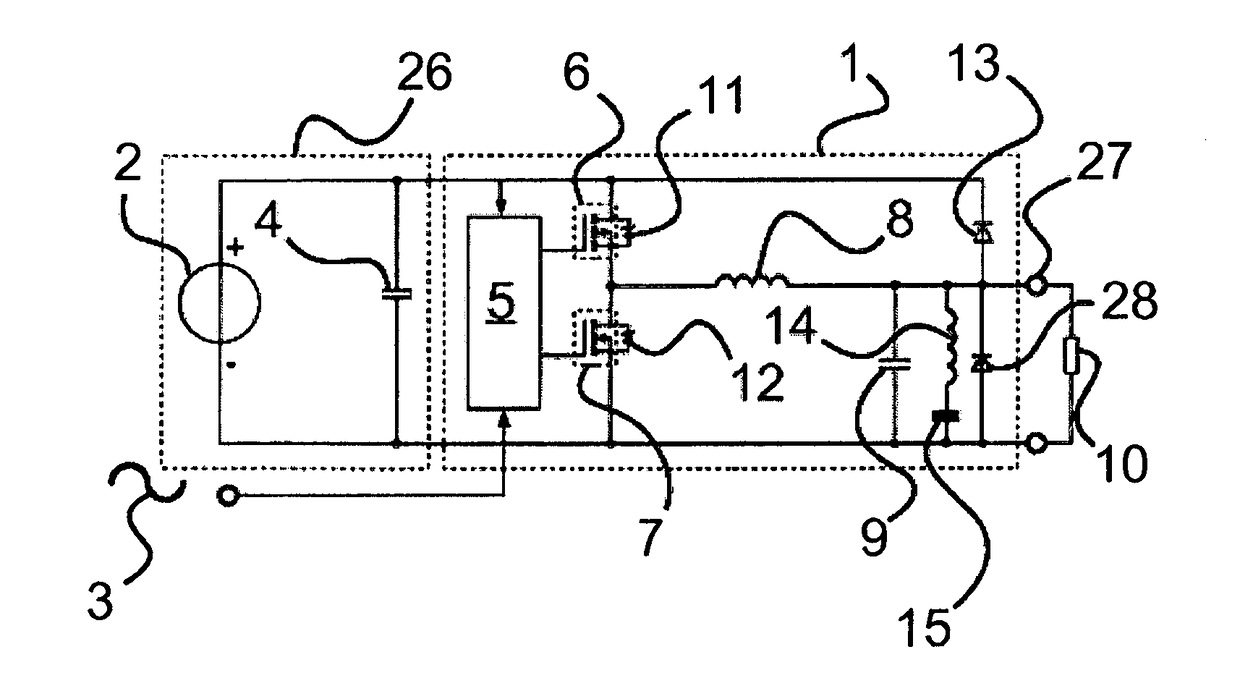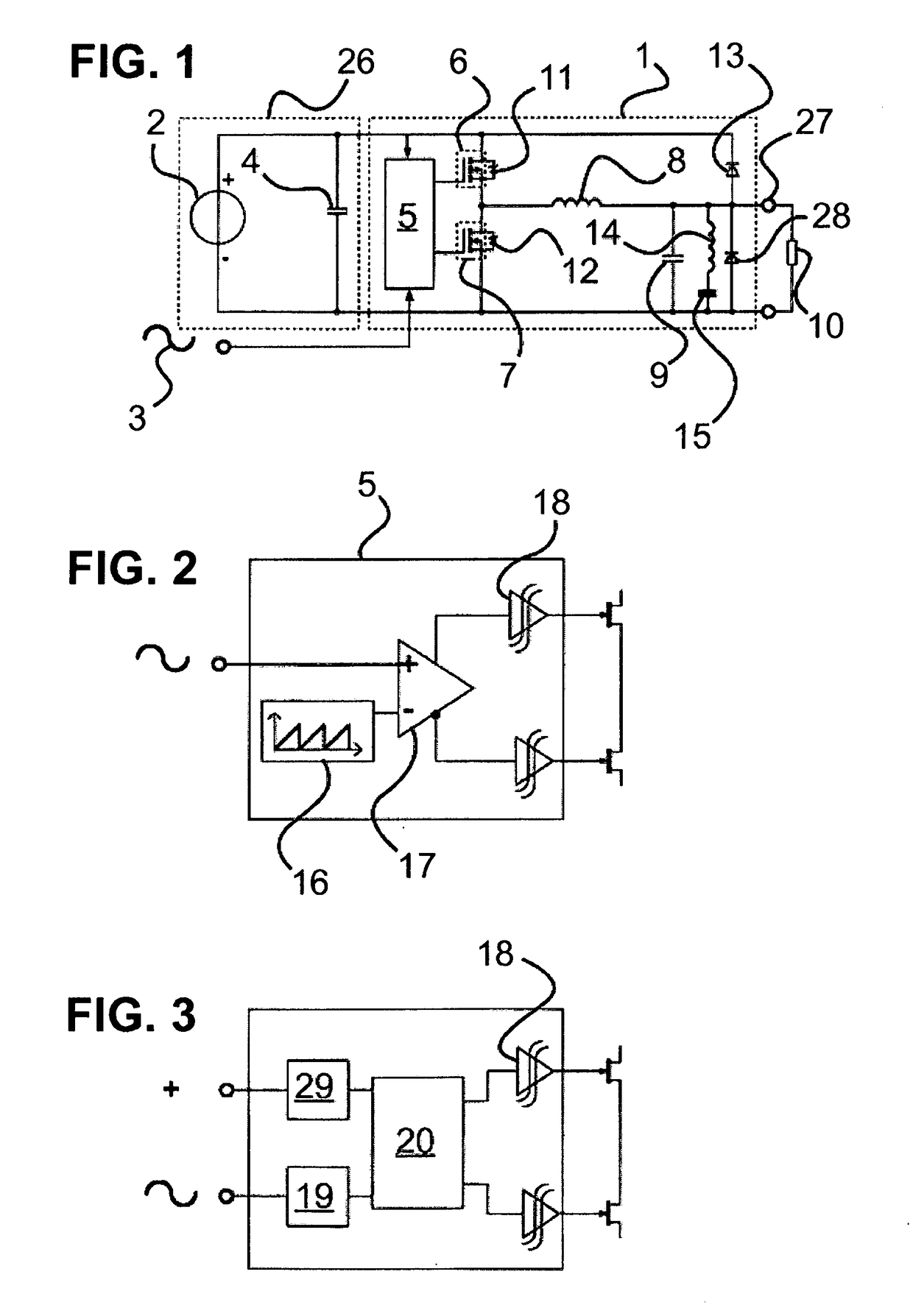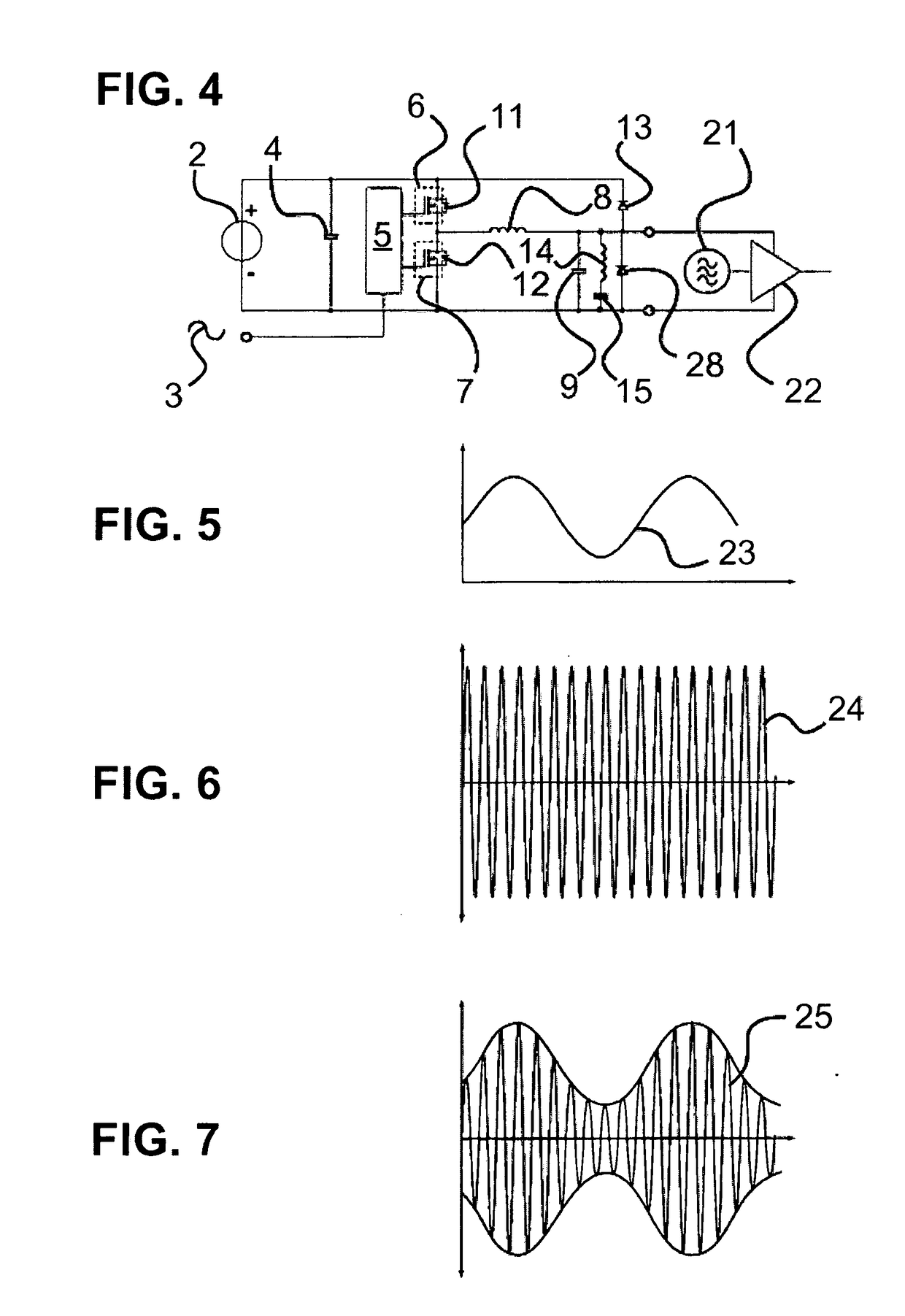Voltage source for modulated DC voltages
a voltage source and modulation technology, applied in the direction of dc-dc conversion, power conversion systems, amplifiers with semiconductor devices/discharge tubes, etc., can solve the problems of poor efficiency of switched-mode power supplies, inability to realize controlled systems with good linearity, and virtually impossible to modulate output voltage even at low frequencies, so as to reduce harmonics of modulated dc signals, low resonance, and work with only very small losses
- Summary
- Abstract
- Description
- Claims
- Application Information
AI Technical Summary
Benefits of technology
Problems solved by technology
Method used
Image
Examples
Embodiment Construction
[0033]The preferred embodiments of the present invention will now be described with reference to FIGS. 1-7 of the drawings. Identical elements in the figures are designated with the same reference numerals.
[0034]The reference sign 3 designates the reference signal. This highly dynamically modulated reference signal is to be power-amplified, but remain as unchanged as possible in shape and phase. The reference signal 3 is applied to the controller 5 of the modulator 1.
[0035]The power supply 26 is of a standard design and consists of the static DC voltage source 2 that can handle a great power and the capacitor 4. The capacitor 4 is drawn representative of several capacities, which can absorb occurring voltage peaks and thus protect the DC voltage source 2 against damage. The DC voltage source is a regulated DC voltage source, i.e., a so-called constant-voltage source, which provides a very exact voltage.
[0036]The modulator 1 has a controller 5. Alternative embodiments of the controll...
PUM
 Login to View More
Login to View More Abstract
Description
Claims
Application Information
 Login to View More
Login to View More - R&D
- Intellectual Property
- Life Sciences
- Materials
- Tech Scout
- Unparalleled Data Quality
- Higher Quality Content
- 60% Fewer Hallucinations
Browse by: Latest US Patents, China's latest patents, Technical Efficacy Thesaurus, Application Domain, Technology Topic, Popular Technical Reports.
© 2025 PatSnap. All rights reserved.Legal|Privacy policy|Modern Slavery Act Transparency Statement|Sitemap|About US| Contact US: help@patsnap.com



